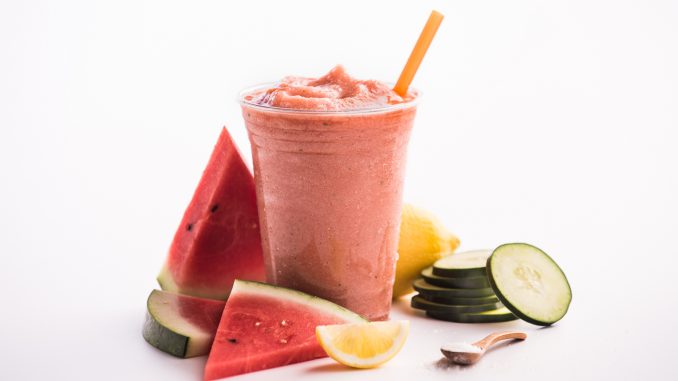
Jamba Juice, a popular juice and smoothie chain, has recently come under scrutiny for potentially misrepresenting the healthiness of their product. A new class action lawsuit states that the chain misleads consumers about the “healthy” nature of their smoothies, alleging that Jamba Juice wrongfully portrays that the drinks are healthy, contain “real fruits,” and include “super ingredients.” The plaintiff alleges that, while the company’s marketing states their smoothies are healthy, the drinks are often high in calories, contain copious amounts of sugar, and are made from concentrated fruit juices rather than real fruit.
Instead of the advertised “super ingredients,” such as kale, Jamba Juice reportedly uses cheaper, less healthy alternatives. The plaintiff argues that the smoothie and juice chain takes advantage of the widespread interest in healthy food options by portraying their product as both healthy and nutritious. The marketing and labeling is designed to deceive consumers about their ingredient and nutritional profile.
Evaluating Both Sides of the Argument
So, how valid is this the plaintiff’s claim? Let’s look at the ingredients. According to the company’s website, Jamba Juice’s popular summer watermelon drinks are a great way to stay hydrated and are “completely soaked with nutrients.” The site continues, stating, “It even has iron to help support your metabolism and Vitamin A for healthy skin.” The Watermelon Breeze(tm) Smoothie’s nutritional content says includes “Real Whole Fruit”: strawberries and pineapple. It also includes “A Blend Of” watermelon juice blend, strawberries, raspberry sherbet, and pineapple. Before getting into the numbers, the site states the smoothie is “non-gluten” and has “NO artificial preservatives, NO artificial flavors, NO high fructose corn syrup, and 0g trans fat.”
While this already seems like a “too good to be true” product, let’s take a closer look at the numbers. A Medium Watermelon Breeze Smoothie (which, according to the ingredients, does not have fresh watermelon), contains 420 calories. While this is significantly better than most frozen drinks, an equal amount of watermelon has just 90 calories. Additionally, the Jamba Juice smoothie has 50mg of sodium, just 30% of the recommended daily amount of iron, and a whopping 82 grams of sugar. The same amount of watermelon has just 30 grams of sugar. To that end, the smoothie claims to be “hydrating,” likely due to the fact that whole watermelon is around 92% water. However, the Watermelon Breeze includes a “watermelon juice blend,” which is likely a fruit concentrate. This necessarily decreases the amount of water in the ingredient, meaning the purported hydration benefits are illegitimate.
It’s Not the Juice, It’s the Hype
While Jamba Juice is not alone in its inclusion of unhealthy ingredients, the marketing leads consumers to believe that they are making a smart, healthy snack or drink choice. The website’s photo slider includes statements like, “Goodness to Fuel Your Day,” “Happy, Healthful, Hydrated,” and “Introducing Whole Food Ingredients with a Whole Lot of Goodness.” It is clear that the company is making an effort to capitalize on recent “whole food” trends but not laying the groundwork to make their products more healthy. While we’re not sure how the class action lawsuit will pan out, the healthier choice is clear; when it comes to finding nutrition and hydration on the go, opt for a homemade juice instead of a sugar-packed smoothie.
